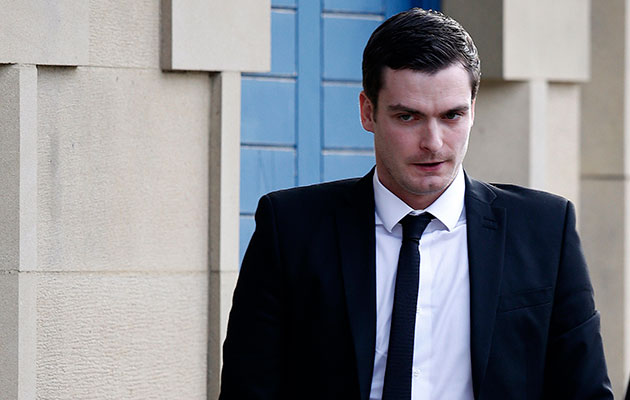Adam Johnson’s has been a horrid affair indeed, but let us keep some sense of proportion. Unlike the leading sports columnist who raged at the presumed turpitude of players at large, to roam wild and free in the afternoons which follow their morning stint of club training.
The devil makes work for idle hands, perhaps feet, was the implicit theme of this tirade. Which of course is nonsensical. That players train in the mornings by and large and are thus free in the afternoons is no new phenomenon; it goes back generations and certainly well before the Second World War.
Nor am I aware of any case which remotely paralleled Johnson’s in the inter war years. What the players did with their own free time seemed often confined to the snooker table, but the seduction of 15-year-old girls if it ever happened at all has never been recorded.
A cynic might say that the players of that pre-war era, confined to a maximum wage of £8 a week – actually a far more substantial one then might now appear, when factory workers and the like might be existing on thirty bob a week – were hardly in a position to indulge their fancies as are the colossally rewarded players of today.
But even in their plutocratic time the case of Johnson is very much the exception that proves the rule.
Sunderland as a club meanwhile come out of the scandal very badly. Not least in fact perhaps most Margaret Byrne the club’s chief executive who it transpires were given abundant chapter and verse by the local police but failed to act upon it, bar a very brief two week suspension and kept the manager Sam Allardyce in the dark, so that Johnson went on playing and pocketed another £3 million.
By the time you read this, Ms Byrne may well have resigned as indeed she should; unless the club itself sacks her.
“And where were the Professional Footballers’ Association in all of this?” demands an outraged and public-spirited national daily journalist?
Sunderland say the PFA actually advised them to reinstate Johnson after his initial suspension. They made in their own statements no mention of Johnson’s victim, nor did they explain the rationale if any of their own position. How much did they know?
As for the implication that Johnson represents the behaviour and attitudes of top players at large, such a facile and emotional position is surely ridiculed by the case of Tottenham’s refulgent new star the 20-year-old Dale Alli who since moving from Milton Keynes to Spurs this season has emerged as international figure as well as a superb figure in the Tottenham attack.
Yet he could hardly have had a more difficult and potentially traumatising beginning, born to an unmarried mother who had several children by different fathers, shockingly neglected, he grew up with foster parents, and turned into the remarkable footballer that he is today, sublimely skilled, utterly self confident, an astonishingly original talent.
Between the wars, many footballers would spend their afternoons playing snooker. For the young millionaires of today, temptations may well abound. But to tar them all with the same brush as the egregious Johnson is superficial and absurd.

With friends like this…new Fifa chief Gianni Infantino (left) was closely associated with the suspended Michel Platini.
“We will restore the image of FIFA and the respect of FIFA and everyone in the world will applaud us,” declared the new President of FIFA Gianni Infantino. To which the right answer might well be a long loud raspberry.
For a start, Infantino doesn’t intend to do anything about the corrupt award of the next two World Cups to Russia and Qatar. He aims to boost the World Cup finals to 40 teams and, shades of his devious predecessors, pay $5 million to every FIFA member, $40 million for each Confederation and $4 million for regional youth tournaments.
Meanwhile, he has the dubious endorsements upon him of Sepp Blatter: “He has all the qualities to continue my work.” How reassuring.
Infantino of course worked closely and loyally with Michel Platini, subsequently disgraced over the Blatter payment, at UEFA. Platini was enraged when the eight-year ban on himself and Blatter was reduced “only” to six, avowing his total innocence pocketing that nine-year delayed FIFA payment.
He has yet to exonerate himself from the monstrosity of supporting the Qatari bid for the World Cup, not only when it would have had to be played in ferocious heat, but even when it was switched to the winter to the detriment of the European countries whom he was supposed to represent. Greg Dyke of the FA who now threatens us with an autobiography was once, you may recall, a Platini man.

Joey Barton is enjoying a renewed lease of life at promotion-chasing Burnley.
Now that the improved pristine Joey Barton has risen from transient obscurity to flourish at Burnley, to the delight of his manager Sean Dyche, celebrating you might say with advice to Jermaine Jenas on what to do on TV Question Time, will he revive the promised autobiography once to be ghosted by a table tennis Times intellectual whom he dismissed?







